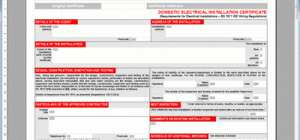 Being a financial advisor sounds pretty easy on the face of it, speaking each day with rich people and telling them how they should spend their money. The truth however is that there is a bit more to it than that and your reputation as an advisor is on the line with every piece of advice that you offer. This is not a career for everyone and you need to have a very firm grasp on not only the world of finance and global economy but also the financial options that a multitude of different people, with different financial situations, have in front of them. Unlike many careers, to become a personal financial advisor you do not need a specific career. Graduates with bachelor’s degrees from all different types of disciplines can become successful financial advisors. Some students choose to take a more traditional path specializing in areas such as finance, accounting or business, but careers such as psychology are also beneficial because counseling involves counseling.
Being a financial advisor sounds pretty easy on the face of it, speaking each day with rich people and telling them how they should spend their money. The truth however is that there is a bit more to it than that and your reputation as an advisor is on the line with every piece of advice that you offer. This is not a career for everyone and you need to have a very firm grasp on not only the world of finance and global economy but also the financial options that a multitude of different people, with different financial situations, have in front of them. Unlike many careers, to become a personal financial advisor you do not need a specific career. Graduates with bachelor’s degrees from all different types of disciplines can become successful financial advisors. Some students choose to take a more traditional path specializing in areas such as finance, accounting or business, but careers such as psychology are also beneficial because counseling involves counseling.
One of the Best
Patrick Dwyer Merrill Lynch wealth manager to the ultra-rich is an example of how a great financial advisor should go about their business. He completed his MBA from the University of Miami and then went on to join the financial juggernaut that is Merrill Lynch straight out of university. From the beginnings Dwyer began to impress and in his two decades with the company he has been regularly featured in the top 100 best advisor list from Barron’s and even featured as one of the World’s best by the Financial Times. In 1999, Dwyer was considered goo enough to work in the elite team put together by Merrill Lynch which would look after the wealthiest of clients and he currently manages over $2 billion worth of assets.
How to Reach This Level
If you want to reach the dizzying heights of Patrick then you are going to need to not only study hard at school and college working on math and economics, but you will also be best served by gaining your MBA before entering the world of work.
Having a strong education is only a small part of becoming a success and you should also have a natural ability to understand the market movements, the causes and effects and what this means to your client’s money. The minimum requirement to take the entry level to find employment as a financial advisor is a bachelor’s degree. Although a bachelor’s degree in any discipline is acceptable, those related to this field are most desired. Common specializations include: financial planning, accounting, finance, economics, business, law, and math. Completing courses in disciplines such as risk management, estate planning, investment and taxes are also beneficial to this field of work. Acquiring work experience through internships increases employment opportunities after graduation.
Working in the financial services industry you will be required to process and analyze huge amounts of highly complex and high frequency information which you will need to break down into simple form for your clients and you will also need to have the resilience to bounce back should a decision not go your way.
In terms of how you are with your clients you need to not only deliver results but also be able to sell them the product that you are offering (your advice), but also have excellent communication skills so that you can strike up a health relationship with your clients. Financial advisors need to have absolute trust from their clients as they are dealing with the most important thing in their client’s lives, their money.
Ultimately your success as a financial advisor will be dependent on your results and if you can forge a career where you consistently deliver returns on investments and offer smart decisions then you will rise to the top of your industry.







